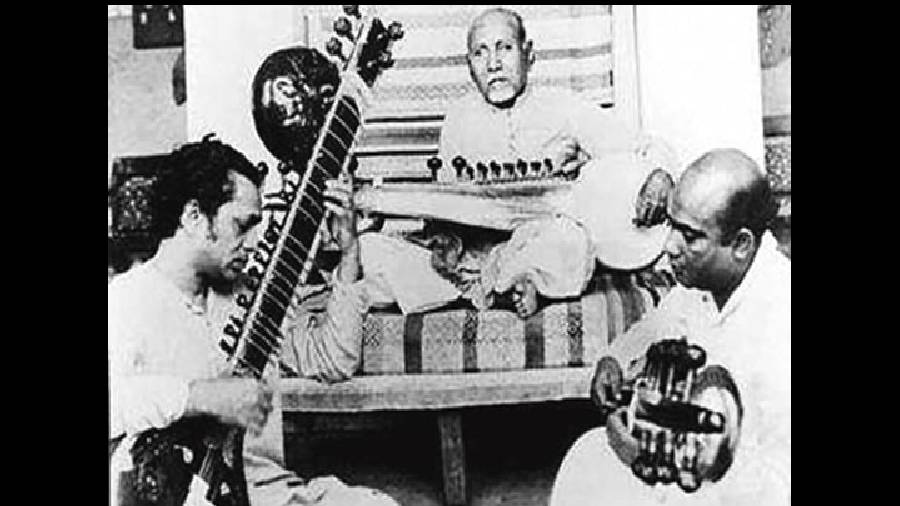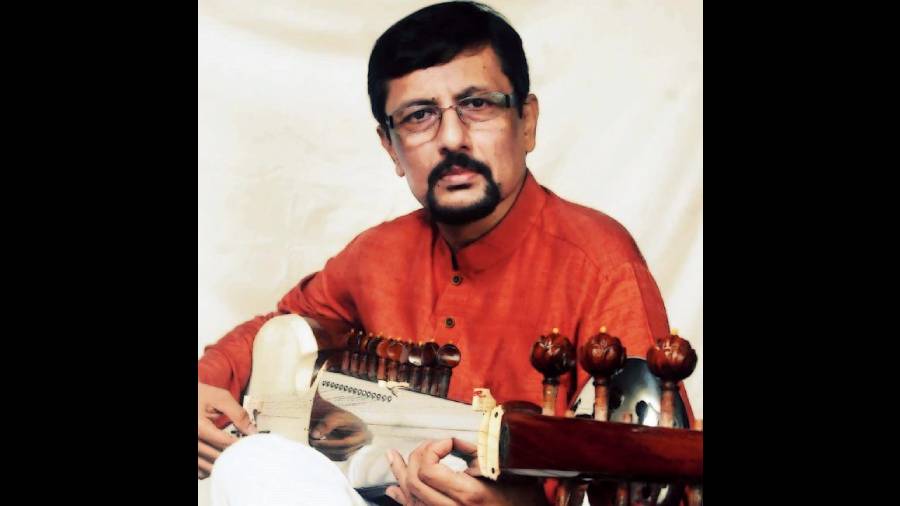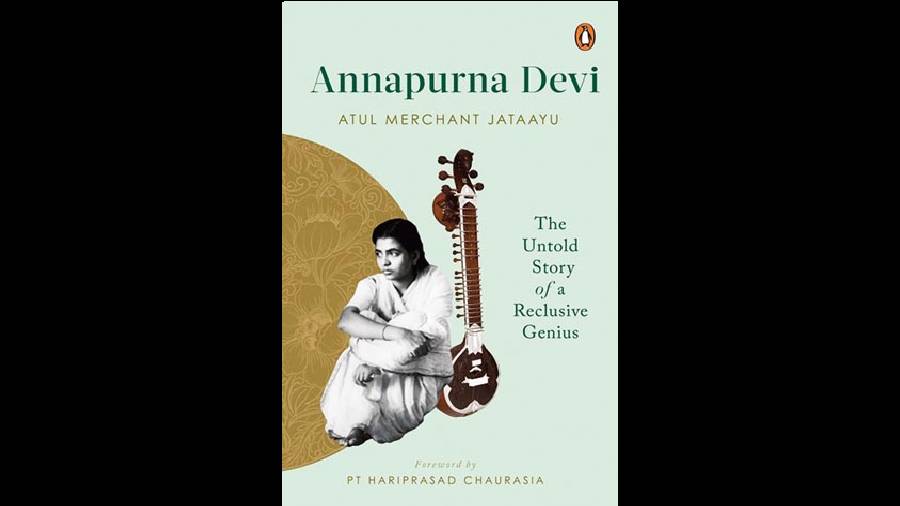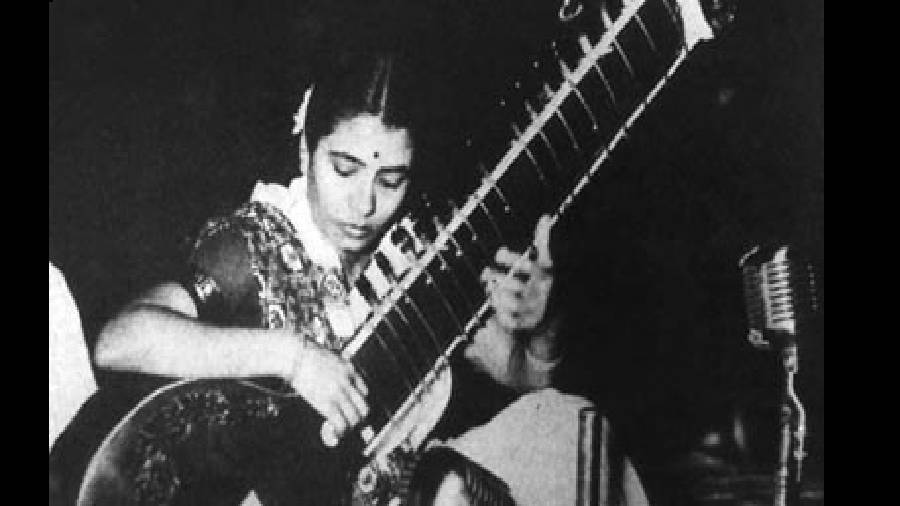There is something intriguing about people making choices that do not align with social norms –– it births curiosity, fear, wonderment and awe. Such was the case of Annapurna Devi, a musician claimed to be the best the country has seen but heard only by a privileged few. Daughter of Allauddin Khan and sister of Ali Akbar Khan, Annapurna’s life is shrouded in mystery, just like her genius and is overshadowed by her tumultuous marriage with pandit Ravi Shankar. The surbahar player who was taught by her father, Baba, as he is lovingly called by all his disciples, lived the life of a recluse, in sharp contrast to the life path forged by her estranged and later divorced husband Ravi Shankar.
There are myriad anecdotal tales around her life and talent but few people to corroborate those tales for her life revolved around her disciples and her later spouse Rooshikumar Pandya. Thus, it is only inevitable that one gets excited to finally receive a book that has been written by her student Atul Merchant Jataayu after many discussions with her other students to commemorate the time spent in her glorious presence. With a foreword by Pandit Hariprasad Chaurasia, Annapurna Devi : The Untold Story of a Reclusive Genius (Penguin India; Rs 699) began as a treat for lovers of classical music and good stories.

Ravi Shankar, Allauddin Khan and Ali Akbar Khan

Atul Merchant Jataayu

Told through short chapters, each narrating and elaborating upon an anecdote, the book trails the life of Allauddin Khan and his life in Maihar and the subsequent taalim of Ali Akbar, Ravi Shankar and Annapurna. All heard through ‘Ma’s mouth as she was referred to with reverence by her students, the book is a lesson on spirituality, art, compassion, devotion and religion beyond human cognition. There are tales of Allauddin Khan feeling agitated upon entering a church in Brussels till he ultimately collapsed in tears in front of the statue of Mother Mary repeatedly saying ‘Maa maa’. The man who had a Muslim name and offered namaz twice a day and prayed to Sharada Maa for an hour every day, music was his religion. Gods and goddesses were mere vessels through which their bodies conversed with the supernatural.
Replete with instances that invite awe, like the house filling with the smell of sandalwood whenever Annapurna Devi played or instances of her innocent clairvoyance, this book written in short, simple sentences warranted a goosebump-inducing ride. However, the book arouses the question of separating a musical genius’s identity from the controversy that surrounds her private life. The portion about Ravi Shankar and their son Shubho’s untimely demise casts a cloud of darkness on the book that it perhaps could have done without. There has been much of ‘he said-she said’ around their relationship with each camp blaming the other for a failed marriage and this book too succumbs to the trope in an effort to clear the air.
There is a portion in the book where Rooshikumar Pandya is asked why he could convince Annapurna Devi to marry him but was unable to convince her to perform in public. He responds –– “As I have taught you in psychology, people operate basically from three levels. Pleasure motives, reality motives and principle motives. When a person is operating on principle motives it is almost impossible to negotiate with that person”.
This aptly sums up the life of Annapurna Devi and her resolution to never perform in public as vowed to her then husband Ravi Shankar. Her entire life was built on the principle of your guru being the highest and oftentimes only authority in your life. She never gave up her sadhana and continued her life in her apartment in Akashganga in Mumbai till she breathed her last. The tales narrated in this book by her students throw light upon a mind and heart that operated on a different plane, giving us a glimpse of what it takes to make a genius. Slightly difficult to digest for a staunchly feminist mind, her sacrifice to never perform for public stemmed from her hatred for fame and an alleged effort to save her marriage. However, it also makes one wish that the book had concentrated on her instead of casting aspersions on unnamed musicians and fights between more recent musicians who debate the advent of a certain raag and gharana. These little additions as seen in chapters like Queen Elizabeth’s Piano take away from the book instead of lending to it, making it sound like the evening out of an old vendetta instead of telling the story of one of the greatest musicians of the world. However, the simple style of storytelling and some precious anecdotes in between make the book worth picking up.
